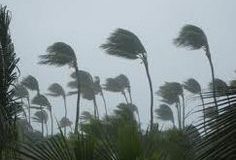
Are you getting new bumps after using Permethrin? Can scabies itching worsen from using this conventional scabies treatment?
For starters, getting infested with scabies is not a laughing matter and embarrassing for most of the individuals. The scabies mites crawl and burrow into your skin and lay their eggs. At first you won’t see any marks or rashes but when they appear, you can easily confuse them with other skin conditions like eczema, etc.
The most frustrating part is the extreme itching especially at night or after taking a hot shower. This is a result of your skin being irritated from their eggs and waste matter. Many people find it really frustrating to get a good amount of sleep because of the intense itching.
Permethrin is one of the most commonly prescribed treatments for scabies. It’s a synthetic chemical that has a very wide range of insecticidal activity. It works by attacking certain nerve endings of the scabies mites. This causes complex reactions to different organs which leads to the destruction of the nervous system and to the death of the scabies mites.
Your first irritation is due to your skin reacting to the mites and the waste they leave behind rather than just the burrowing areas. It’s believed that new bumps after Permethrin appear because the chemical aggravated the original rash and it’s really hard to tell the different irritations when your skin is in this state of infestation.
Scabies itching tends to feel a lot worse because the first application of Permethrin kills the mites that you didn’t know you had and hasn’t started to itch yet. Permethrin treats you in the first few days then suddenly the itch becomes so intense. You may think that you’ve been infected again but that’s not really the case.
Permethrin is one of the most common scabies treatments but unfortunately it also makes you more itchy and leaves you a stinging and burning feeling in your skin. Like I’ve mentioned, it’s a chemical and it’s made from a synthetic form of Pyrethrum which is a common ingredient found in insecticides!

Source by Michael Derrick
 Vitamin Agent The Health & Naturalistic Source
Vitamin Agent The Health & Naturalistic Source




